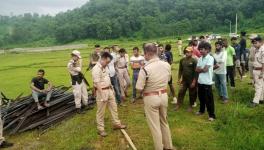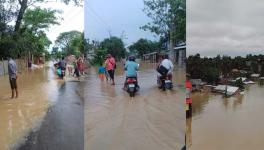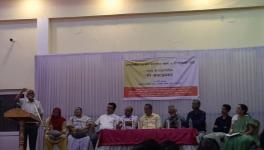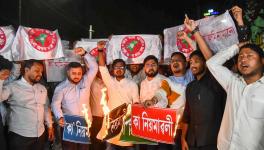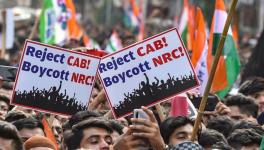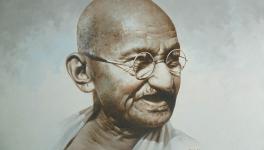Refugee, Immigrant or Citizen?
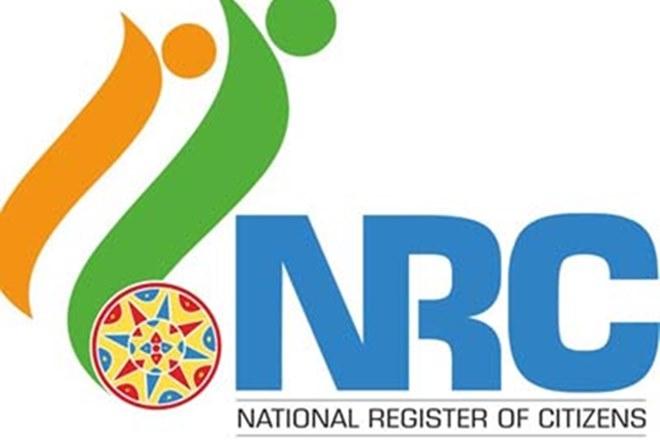
Image Courtesy: The Financial Express
Updating the NRC in Assam is currently underway with the first draft published at the stroke of midnight on December 31, 2017. The process faced opposition from some quarters particularly from the All Assam Minority Students Union (AAMSU) and the Chief Minister of West Bengal, Mamata Banerjee. However, the major political parties in the state have welcomed the process, including the AIUDF. What people in Assam have been opposed to however, is the Citizenship Amendment Bill. The Bill proposes to make illegal migrants from Afghanistan, Bangladesh and Pakistan who are Hindus, Sikhs, Buddhists, Jains, Parsis and Christians, eligible for citizenship. In Assam the opposition to the Bill is because it will violate the Assam Accord. In West Bengal the opposition to the Bill is that it discriminates based on religion and thus violates Article 14 of the Constitution. There are other grounds on which the proposed Bill is unconstitutional such as it will violate the ‘basic structure’ of the constitution by violating the principle of secularism. However, such divergent exercises betray the fact that India has no consistent refugee policy.
Those advocating the Citizenship Amendment Bill claim that it is being done on ‘humanitarian’ grounds. However, Assam is not the only state that is opposed to granting illegal immigrants or refugees citizenship. In Arunachal Pradesh, the All Arunachal Pradesh Students Union (AAPSU) has consistently opposed citizenship for the Chakmas and Hajongs. The Chakmas had fled the Chittagong Hill Tracts (CHT) in the 1960s after the Kaptai Dam submerged their homes, and the Government of Bangladesh did not rehabilitate them. They had initially fled to Tripura and Mizoram, from where they were shifted to an area of Arunachal Pradesh where till date there are only footpaths and no roads. Despite that Chakmas are a recognised minority in Mizoram, with their own Autonomous Council. This was done to make space for the Mukti Bahini militants who were being trained there.
The Citizenship Amendment Bill confers a de facto refugee status, and a fast-tracked citizenship process. As per this amendment, Chakmas and Hajongs who are Buddhist and Hindu respectively will be eligible for citizenship. The next question is, what will happen to other refugees? For example, the Tibetans. The Tibetan refugees in India were some of the first entrants since partition. While those who had entered during partition have received citizenship through the constitution, those arriving later have had to contend with India’s citizenship laws. The Tibetans have served in the Armed Forces, and even took part on the Bangladesh front via Mizoram during the 1971 War. Yet till date they have no rights to title over immovable property, instead they hold residence permits. The Nepalese-Bhutanese from southern Bhutan who fled in the 1990s are another ‘persecuted minority’ who will be ‘left-out’ through the Citizenship Bill. Though they are mostly housed in refugee camps in Nepal – India refused them refugee status –some have settled in Sonitpur district in Assam, and around Sevoke near Darjeeling in West Bengal, their status remains that of ‘illegal immigrants’.
India is neither a signatory to the 1951 Convention on Refugees nor to the subsequent Protocol. A ‘refugee’ under the Convention is defined as a person who “owing to well-founded fear of being persecuted for reasons of race, religion, nationality, membership of a particular social group or political opinion, is outside the country of his nationality and is unable or, owing to such fear, is unwilling to avail himself of the protection of that country; or who, not having a nationality and being outside the country of his former habitual residence as a result of such events, is unable or, owing to such fear, is unwilling to return to it.”
India’s unwillingness to become a signatory to the Refugee Convention and lack of legislation to deal with the issue means that policies can never be consistent. In the case of the NRC in Assam, there is concern regarding the disenfranchisement of Bengali-speaking Muslims who may not make it to the final list. There is also the issue of identity documents of those who migrated to Assam from other states not being verified by the authorities in their states of origin. This may result in a delay to the NRC process. However, the real question here is what will happen to those who are declared ‘aliens’ or ‘illegal migrants’? There is speculation that they would receive residence permits, particularly since Bangladesh does not recognise them as its citizens let alone its nationals. India is also unlikely to come to an agreement with Bangladesh on the issue as India does not wish to sour their relations. Bangladesh has been instrumental in helping curb militant activity in the Northeast. Another issue for India is the inroads China is making in South Asia. There is no doubt that there is a potential crisis in the making regarding the NRC, whether India wants to risk another Assamese rebellion is worth considering.
Get the latest reports & analysis with people's perspective on Protests, movements & deep analytical videos, discussions of the current affairs in your Telegram app. Subscribe to NewsClick's Telegram channel & get Real-Time updates on stories, as they get published on our website.










